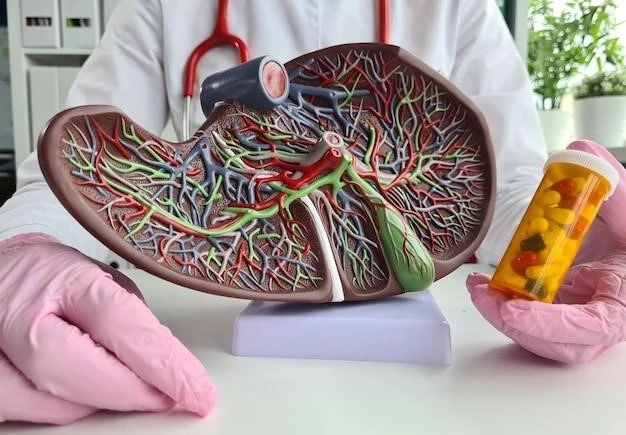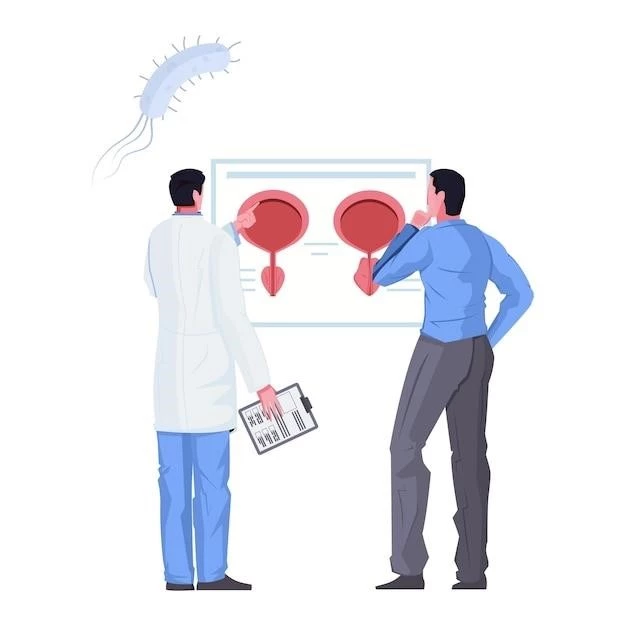Early signs include dehydration, poor feeding, and vomiting. Later manifestations may feature rapid growth and early puberty.
Common Symptoms⁚
It is crucial to recognize common symptoms of congenital adrenal hyperplasia. Early signs may include dehydration, poor feeding, and vomiting. As the condition progresses, affected individuals may experience rapid growth and early puberty. If you observe these symptoms, consult a healthcare provider promptly for proper evaluation and management.
Other Symptoms⁚
Aside from common symptoms, individuals with congenital adrenal hyperplasia may experience electrolyte imbalances, abnormal menstrual cycles, and excessive hair growth. It’s vital to be aware of these additional signs and seek medical advice for a comprehensive assessment and personalized treatment plan. Early detection and management of these symptoms are essential for maintaining optimal health and well-being.
Consult healthcare professionals for appropriate medication to manage 21-hydroxylase deficiency effectively.
Medication⁚
For individuals with 21-hydroxylase deficiency, medications such as glucocorticoids and mineralocorticoids are commonly prescribed to manage hormone imbalances effectively. These medications help replace the deficient hormones and regulate the body’s functions. It is essential to adhere to the prescribed dosage and follow-up with healthcare providers regularly to optimize treatment outcomes and maintain overall health.

Surgical Intervention⁚
In some cases of 21-hydroxylase deficiency, surgical interventions like corrective genital surgery may be necessary to address anatomical abnormalities. Surgical procedures are typically recommended by a specialized healthcare team to improve physical function and overall quality of life. It is important to discuss all available options, potential risks, and benefits with healthcare professionals to make informed decisions regarding surgical interventions.
Understand the genetic basis of CAH, specifically the impact of mutations in the 21-hydroxylase gene, for targeted treatment strategies.
21-Hydroxylase Gene Mutations⁚
Individuals with congenital adrenal hyperplasia often inherit mutations in the 21-hydroxylase gene, affecting cortisol and aldosterone production. Understanding these gene variations is crucial for personalized treatment plans and genetic counseling. Collaborate with genetic counselors and endocrinologists to navigate the complexities of genetic causes and optimize management strategies tailored to your unique genetic profile.
Other Genetic Variants⁚
Aside from 21-hydroxylase gene mutations, individuals with congenital adrenal hyperplasia may have other genetic variants that contribute to the condition’s complexity. Genetic testing can reveal additional genetic factors influencing disease presentation and severity. Working closely with genetics specialists can provide valuable insights into these genetic variations, paving the way for tailored treatment approaches and comprehensive management strategies specific to your genetic makeup.
Monitor hormone levels consistently to manage hormone imbalance effectively in congenital adrenal hyperplasia.
Regular Monitoring⁚
Consistent hormone level monitoring is vital for managing hormone imbalance in individuals with congenital adrenal hyperplasia. Regular check-ups with endocrinologists ensure appropriate hormone replacement therapy and adjustments based on monitoring results. By tracking hormone levels closely, healthcare providers can tailor treatment plans to maintain hormonal balance, prevent complications, and promote overall well-being. Stay proactive in monitoring your hormone levels to effectively manage your condition and optimize health outcomes.
Lifestyle Adjustments⁚
Managing congenital adrenal hyperplasia involves essential lifestyle adjustments to support overall health. It’s crucial to maintain a balanced diet rich in nutrients and low in sodium to manage hormone levels effectively. Regular physical activity and stress-reduction techniques play a key role in promoting well-being. By prioritizing self-care, adequate rest, and stress management, individuals with CAH can enhance their quality of life and support their treatment plan. Consult healthcare providers for personalized lifestyle recommendations tailored to your individual needs.
Untreated CAH may lead to serious complications affecting growth, development, and overall health. Timely intervention is crucial.
Possible Complications⁚
Untreated congenital adrenal hyperplasia can result in various complications, including adrenal crisis, electrolyte imbalances, and abnormal development of sexual characteristics. Long-term effects may impact growth, fertility, and overall health. Effective management strategies, such as hormone replacement therapy and regular monitoring, are essential to reduce the risk of complications and promote well-being. It is important to work closely with healthcare providers to address potential complications proactively and ensure optimal care for individuals with CAH.
Impact on Health⁚
Congenital adrenal hyperplasia, if left untreated, can significantly impact an individual’s health. It may lead to hormonal imbalances, metabolic issues, and fertility challenges. Untreated CAH can also affect physical development and overall well-being. Prompt diagnosis, proper treatment, and lifestyle modifications are crucial to mitigate the health impacts of CAH. By actively managing the condition and adhering to medical recommendations, individuals can lead healthier lives and minimize the long-term effects of untreated CAH on their health.
Ensure early detection and intervention through newborn screening for 21-hydroxylase deficiency for timely management.
Newborn Screening⁚
Newborn screening for 21-hydroxylase deficiency is crucial for early detection of congenital adrenal hyperplasia. This screening involves a simple blood test to assess hormone levels shortly after birth. Early diagnosis enables timely intervention and treatment initiation, preventing complications associated with untreated CAH. It is essential for parents and healthcare providers to prioritize newborn screening to safeguard the health and well-being of infants at risk of this genetic disorder. Consult healthcare professionals for further guidance on newborn screening protocols and follow-up care for positive results.
Genetic Testing⁚
Genetic testing plays a vital role in diagnosing congenital adrenal hyperplasia by identifying specific gene mutations. This test helps confirm the presence of 21-hydroxylase deficiency and provides valuable information for personalized treatment plans. Genetic testing also aids in understanding the inheritance pattern of CAH within families, guiding genetic counseling efforts. By undergoing genetic testing, individuals can gain insights into their condition, allowing healthcare providers to tailor interventions and management strategies according to their genetic profile. Consult with genetics specialists for comprehensive genetic testing and counseling services tailored to your specific needs.
Optimize health by following a balanced diet rich in nutrients and low in sodium to manage congenital adrenal hyperplasia effectively.
Diet and Nutrition⁚
Individuals with congenital adrenal hyperplasia must prioritize a well-rounded diet to support overall health. Opt for nutrient-dense foods like fruits, vegetables, whole grains, and lean proteins while limiting processed foods high in sodium. Adequate hydration is essential. Work with a registered dietitian to develop a personalized nutrition plan that meets your specific needs and helps manage hormone imbalances effectively. Remember, a balanced diet plays a crucial role in optimizing your health and well-being while living with CAH.
Exercise and Physical Activity⁚
Regular physical activity is beneficial for individuals with congenital adrenal hyperplasia. Engage in moderate exercises like walking, swimming, or yoga to support overall health and well-being. Consult with your healthcare team to develop a safe and personalized exercise plan that takes into account your specific needs and any physical limitations. Remember that staying active not only helps manage weight and improve cardiovascular health but also contributes to better mood and energy levels. Prioritize regular physical activity as part of your holistic approach to managing CAH.
Stay informed about the latest advancements in gene therapy for congenital adrenal hyperplasia to explore potential treatment options.
Gene Therapy⁚
Explore the promising field of gene therapy, a cutting-edge approach in treating congenital adrenal hyperplasia. Research in gene therapy aims to address the underlying genetic causes of CAH, offering innovative treatment possibilities. By staying informed about developments in gene therapy, individuals affected by CAH can potentially benefit from future breakthroughs in personalized medicine. Discuss the potential of gene therapy with healthcare providers and genetic specialists to understand how this evolving field may shape the future of CAH management and care.
New Treatment Modalities⁚
Stay informed about emerging treatment modalities for congenital adrenal hyperplasia. Ongoing research explores novel approaches to managing hormone imbalance and minimizing the impact of CAH on health and well-being. By remaining engaged with the latest advancements in treatment options, individuals with CAH can potentially benefit from innovative therapies that offer improved symptom management and enhanced quality of life. Consult healthcare providers to discuss the potential of new treatment modalities and how they may complement existing strategies in optimizing care for CAH.
